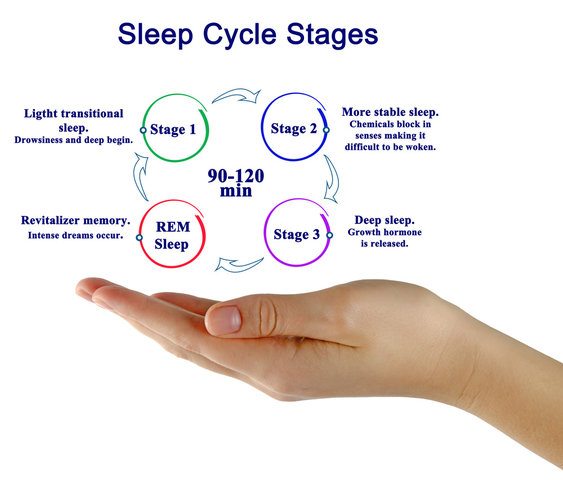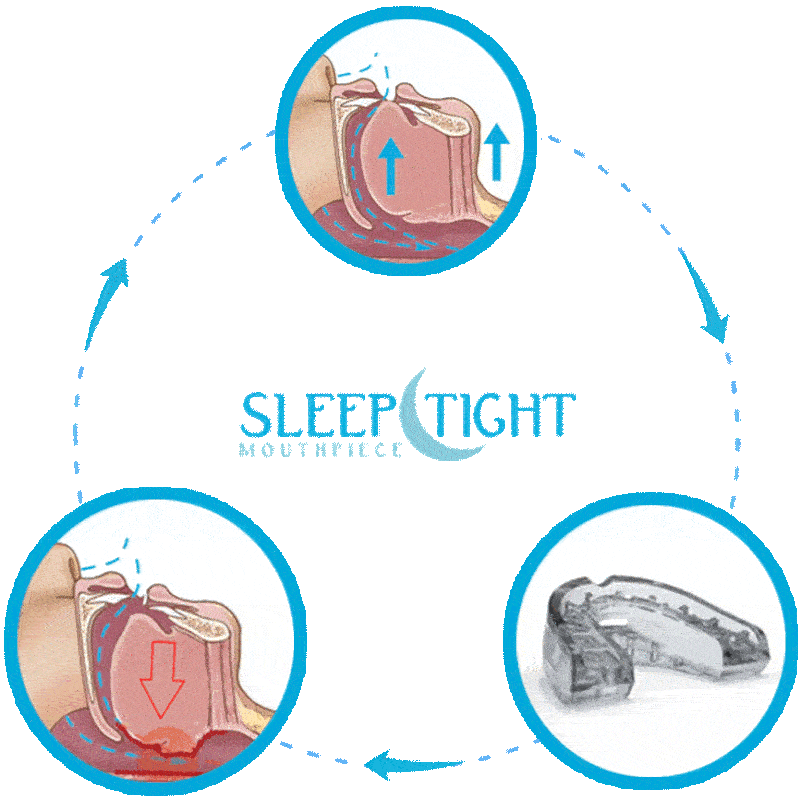Have you ever wondered why we sleep? It seems like a simple question, but the answer is actually quite complex. You see, sleep is not just a time for rest and rejuvenation. It is a vital process that our bodies go through every night, and it is composed of different stages. In this article, we will explore the stages of sleep and why they are so important for our overall well-being.
So, let’s dive into the fascinating world of sleep stages. During the night, we cycle through four stages of sleep, each with its own unique characteristics. The first stage is called NREM stage 1, or the lightest stage of sleep. This is when you’re drifting in and out of consciousness, and may be easily woken up. As we progress into stage 2 and 3, our sleep becomes deeper, and our brain waves slow down even more. Finally, we reach stage 4, also known as REM sleep, which is when the most vivid dreams occur.
Now, you might be wondering why these stages of sleep are so important. Well, each stage plays a crucial role in our physical and mental health. During deep sleep, our body repairs and regenerates tissues, strengthens our immune system, and restores energy levels. REM sleep, on the other hand, is essential for cognitive function, memory consolidation, and emotional regulation. Without these different stages of sleep, we would not be able to function properly during the day, and our overall quality of life would suffer.
In the upcoming article, you’ll explore each stage of sleep in more detail and learn about the specific benefits they provide. You’ll also discover some tips on how to improve your sleep quality and ensure you get enough of each sleep stage. So, join us on this journey of understanding the importance of the stages of sleep and how they contribute to our overall well-being.
Understanding the Stages of Sleep
Have you ever wondered what happens to your body and mind while you’re asleep? Sleep is a fundamental process that plays a crucial role in our overall well-being. It is during sleep that our bodies repair and restore themselves, memories are consolidated, and emotions are regulated. To better understand this complex phenomenon, it is important to explore the different stages of sleep and their significance.
The Purpose of Sleep
Before delving into the specific stages, let’s discuss the purpose of sleep. Sleep serves several essential functions for our bodies and minds. Firstly, it allows our bodies to rest and rejuvenate. During sleep, our muscles repair themselves and our energy is replenished. This physical restoration is vital for our overall health and vitality.
Secondly, sleep plays a crucial role in memory consolidation. While we sleep, our brains process and organize the information we have acquired during the day, helping to solidify memories and improve our ability to retain information. This process is particularly important for learning and cognitive function.
Lastly, sleep regulates our emotions and mental well-being. During sleep, our brains regulate chemicals and hormones that affect our mood and emotional processing. Sufficient and quality sleep can help improve mood, reduce stress, and support mental health.
The Different Stages of Sleep
Sleep can be divided into two main categories: non-rapid eye movement (NREM) sleep and rapid eye movement (REM) sleep. These categories are further divided into four distinct stages.
Stage 1: NREM Sleep
Stage 1 sleep, also known as light sleep, is the transitional phase between wakefulness and sleep. During this stage, you may experience drifting in and out of consciousness and may be easily awakened. It is characterized by slow eye movements, relaxed muscles, and a decrease in body temperature and heart rate.
Characteristics of Stage 1 Sleep
In stage 1 sleep, you may feel drowsy and may even experience sudden muscle contractions or a sensation of falling. This stage typically lasts for only a few minutes, and if you were to be awakened during this stage, you might not realize that you were asleep at all.
Brain Activity During Stage 1 Sleep
Brain activity during stage 1 sleep is relatively low and characterized by alpha and theta brain waves. These brain waves are slower in frequency and associated with a state of relaxation and drowsiness.
Stage 2: NREM Sleep
Stage 2 sleep is the second stage of NREM sleep and is characterized by a more pronounced decrease in conscious awareness. It accounts for approximately 50% of total sleep time in adults.
Characteristics of Stage 2 Sleep
During stage 2 sleep, your body temperature continues to decrease, and your heart rate and breathing become more regular. This stage is characterized by the presence of sleep spindles, which are short bursts of rapid brain activity, and K-complexes, which are sudden high-voltage brain waves.
Memory Consolidation in Stage 2 Sleep
Stage 2 sleep is essential for memory consolidation, particularly for procedural memory, which relates to how we perform tasks and skills. It is during this stage that the brain processes and strengthens these memories, helping to improve motor skills and performance.
Stage 3: NREM Sleep
Stage 3 sleep is also known as slow-wave sleep (SWS) or deep sleep. It is considered the most restorative stage of sleep and is crucial for physical restoration and growth.
Characteristics of Stage 3 Sleep
During stage 3 sleep, your brain waves, known as delta waves, become slow and synchronized. These slow wave patterns are associated with deep sleep and are crucial for rejuvenation and overall well-being. In this stage, it may be challenging to wake up, and if awakened, you may feel disoriented and groggy.
The Role of Stage 3 Sleep in Physical Restoration
Stage 3 sleep plays a vital role in physical restoration. It is during this stage that growth hormones are released, aiding in tissue repair, muscle growth, and overall physical development. Additionally, your body’s immune system becomes more active during this stage, helping to fight off infections and maintain optimal health.
Stage 4: REM Sleep
REM sleep is the final stage in the sleep cycle and stands for rapid eye movement sleep. It is characterized by rapid eye movements, increased brain activity, and vivid dreaming.
Characteristics of REM Sleep
During REM sleep, your brain is highly active, and your breathing and heart rate become irregular. REM sleep is also known as paradoxical sleep because, despite increased brain activity, your muscles become temporarily paralyzed, preventing you from physically acting out your dreams.
Dreaming and Emotional Processing in REM Sleep
REM sleep is strongly associated with dreaming. It is during this stage that most vivid, memorable, and emotionally charged dreams occur. Research suggests that REM sleep plays a crucial role in processing emotions and that experiencing REM sleep deprivation can lead to increased emotional reactivity and mood disorders.
The Importance of Sleep Stages
Now that we have explored the different stages of sleep, let’s examine why understanding these stages is important for our well-being.
Restoring and Replenishing the Body
The stages of sleep, particularly stage 3 and REM sleep, are essential for physical restoration and replenishment. To maintain optimal health and vitality, it is crucial to prioritize getting sufficient amounts of deep sleep and REM sleep.
Consolidating and Processing Memories
Sleep, particularly stage 2 and REM sleep, plays a crucial role in consolidating and processing memories. Sufficient and quality sleep can enhance learning, memory retention, and cognitive function. It is during sleep that our brains organize and solidify the information we have acquired, ensuring that it is available for future use.
Regulating Emotions and Mental Well-being
Sleep stages, especially REM sleep, are closely linked to emotional processing and regulation. Adequate REM sleep allows for the proper regulation of hormones and neurotransmitters involved in mood and emotional well-being. Disruptions in REM sleep have been linked to increased emotional reactivity, mood disorders, and difficulties in managing stress.
Factors That Affect Sleep Stages
Several factors can influence the different stages of sleep.
Age
As we age, the amount and architecture of our sleep changes. Older adults may experience a decrease in deep sleep and an increase in lighter sleep stages. This can result in more fragmented sleep, leading to disrupted sleep patterns and increased daytime sleepiness.
Sleep Disorders
Sleep disorders, such as insomnia, sleep apnea, and restless leg syndrome, can significantly impact the quality and duration of sleep stages. These disorders can disrupt the natural sleep cycle, leading to fragmented and unrestful sleep.
Environmental Factors
External factors, such as noise, light, temperature, and an uncomfortable sleep environment, can all impact the different stages of sleep. Creating a conducive sleep environment, free from distractions and discomfort, can help promote better sleep stages and overall sleep quality.
Understanding Sleep Architecture
To best understand the stages of sleep, it is essential to grasp the concept of sleep architecture. Sleep architecture refers to the organization and pattern of the different sleep stages within the sleep cycle.
The Sleep Cycle
The sleep cycle consists of multiple cycles of NREM and REM sleep. Each cycle lasts approximately 90-120 minutes and includes all four stages of sleep. Throughout the night, the proportion of time spent in each stage changes, with an increased amount of REM sleep observed in the later cycles.
Duration of Each Sleep Stage
The duration of each sleep stage varies throughout the night. In the initial cycles, the majority of sleep is spent in stage 3, deep sleep. As the night progresses, the amount of deep sleep decreases, while the amount of REM sleep increases. By morning, REM sleep dominates the sleep cycle.
The Impact of Sleep Deprivation
Sleep deprivation, whether chronic or acute, can have detrimental effects on both our physical and mental well-being.
Cognitive Impairment
Lack of sufficient sleep can significantly impair cognitive function, including attention, memory, and decision-making. Sleep-deprived individuals often experience difficulties in focusing, problem-solving, and retaining information.
Mood Disorders
Prolonged sleep deprivation can contribute to the development of mood disorders, such as depression and anxiety. Sleep plays a crucial role in emotional regulation, and a lack of quality sleep can lead to increased emotional reactivity, irritability, and mood disturbances.
Weakened Immune System
Sleep deprivation can weaken the immune system, leaving us more vulnerable to infections and illnesses. It can reduce the production of immune cells and affect the body’s ability to fight off pathogens effectively.
Conclusion
The stages of sleep play a vital role in various physiological and psychological processes. Understanding these stages can help improve sleep quality and overall well-being. By prioritizing sleep and creating a conducive sleep environment, you can optimize the different stages of sleep, allowing your body and mind to reap the countless benefits that quality sleep provides. So, remember to prioritize a good night’s sleep and let your body and mind rest, repair, and rejuvenate.



